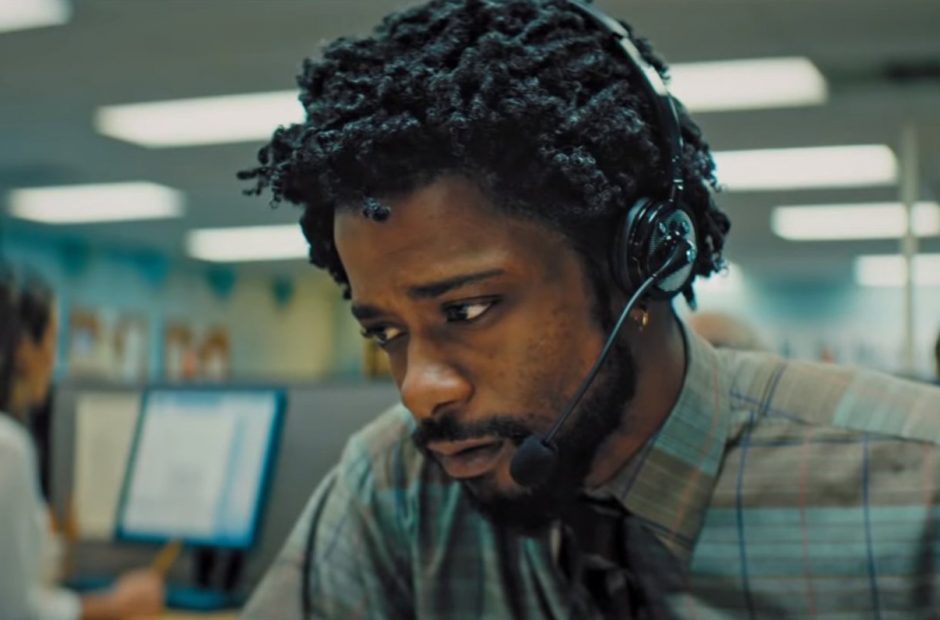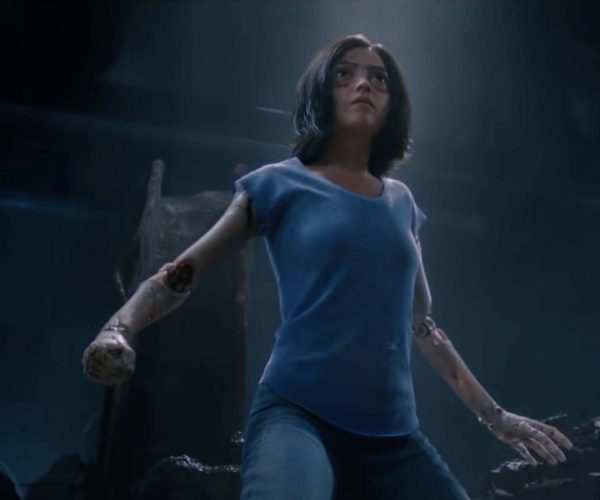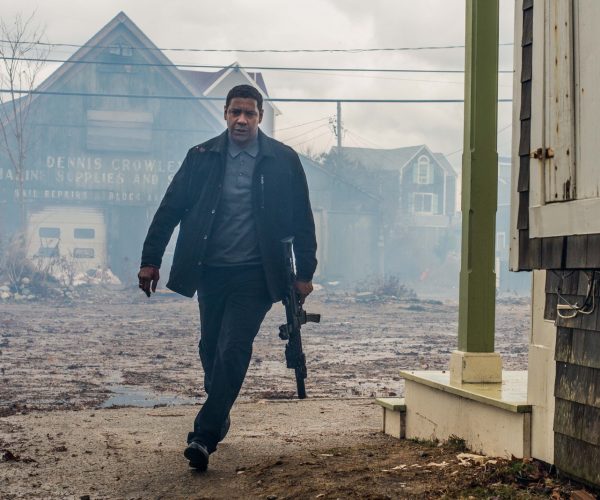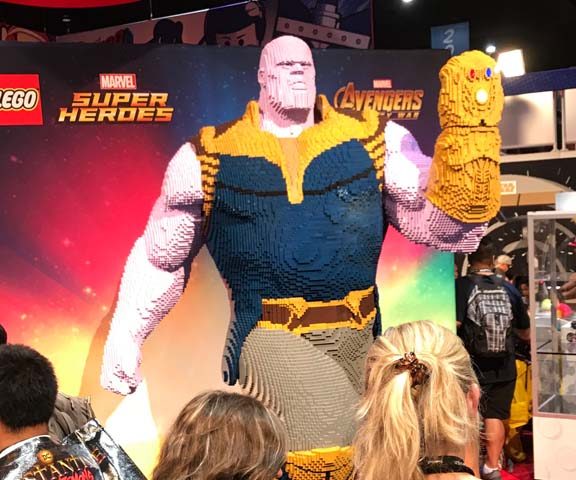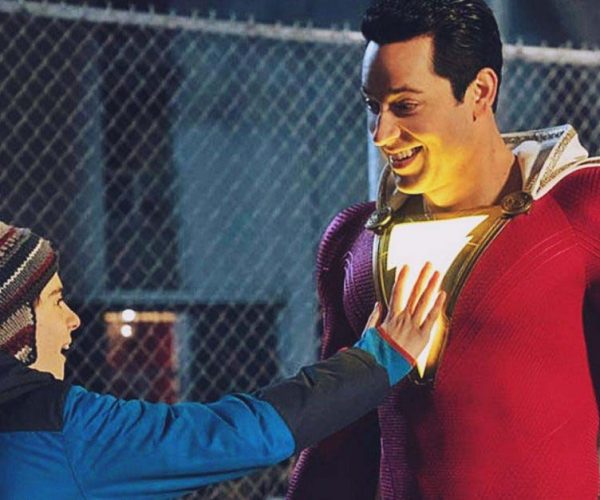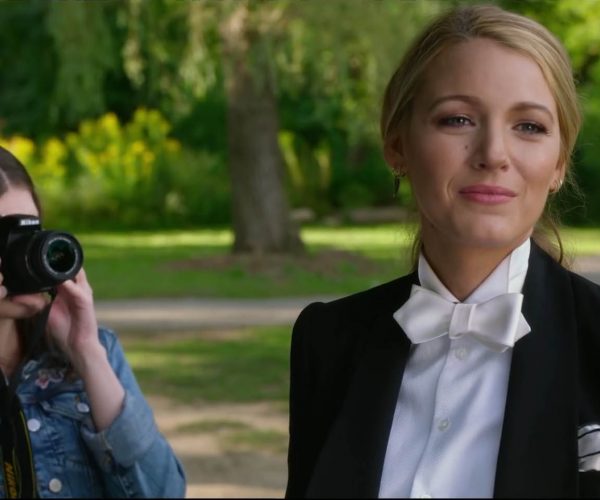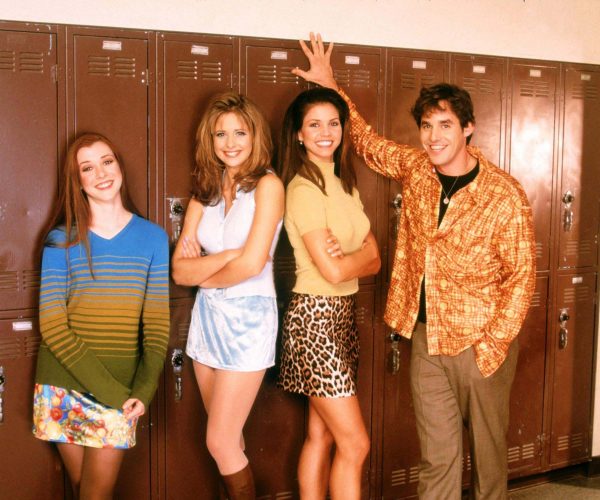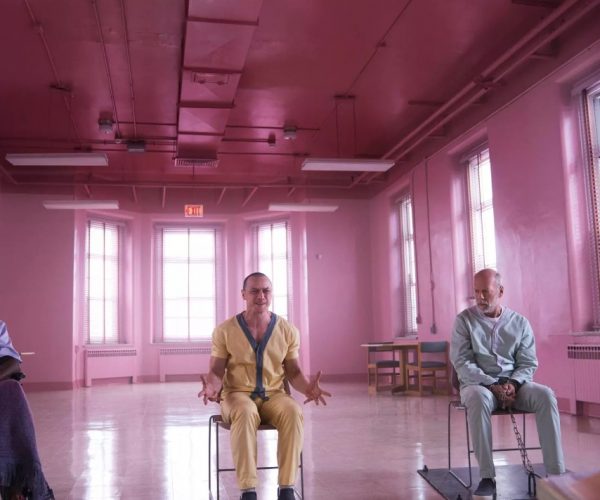Do you ever think about where your money goes? When you go to that shopping site you love and take advantage of two-day shipping, do you think about the cost of that convenience? Do you think about how the company you work for profits off your work – and whether the compensation they offer you is fair? Sorry to Bother You is a weird movie that defies genre, uses your expectations against you, and asks you to question these notions through unique, hilarious writing and bizarre plot twists I don’t dare spoil.
Cassius Green (Lakeith Stanfield) – say the name aloud if you don’t get it – is a young black man living in his uncle’s garage. He’s four months behind on rent, driving a car that barely works. His girlfriend, Detroit (Tessa Thompson), adores him even as he struggles to find work, while she works on her first gallery opening. After (badly) lying his way through an interview with a telemarketing company, Cassius finds his voice – literally – and starts climbing the fast-moving escalator to success even as the world around him is descending into chaos.
As I said above, I don’t want to spoil the core of the movie, but beware some very light spoilers (that you can probably find in the trailers) in this review.
I’m late to this movie. It opened on July 6, but it’s worth talking about, and I have a feeling it’s going to be talked about for a long time.
In Sorry to Bother You, director and writer Boots Riley has put together the funniest and most fascinating indictment of capitalism I could imagine. The movie revolves around Cassius’ struggles within the telemarketing company he’s employed with. As he begins to find success, his coworkers are also beginning to unionize. Meanwhile, a company called WorryFree is advertising its revolutionary lifetime-contract employment that ensures employees housing and food without a need to pay them a dime, as all their basic needs are taken care of.
Early in the film, Cassius finds his “white” voice. Instead of trying to explain what that is, I’m going to let Riley himself do it from a recent interview with Democracy Now:
Well, so, in the film, Danny Glover’s character Langston…explains that the white voice doesn’t really exist. White people don’t even have it. They use it, and it’s a performance. There’s a performance of whiteness that is all about saying that everything is OK, you’ve got your bills paid, and that—and, you know, this kind of smooth and easy thing. And it’s, at the very least, the idea of what black folks have to do in order to hide their identity sometime over the phone or to say that they’re safe.
The humor is elevated by awesome shots and editing that make going back to the movie a second time rewarding. Sight gags in the background add to the absurdity of the goings-on without taking away from the seriousness of the ideas. When Cassius drops into a call, he drops into the life of the person that answers, appearing in their house with them. When he’s starting out, it’s awkward and difficult. As he finds his White Voice, it becomes increasingly natural, and makes for some of the funniest conversations of the movie. We hear the idioms and unspoken contracts of casual interaction that we string together to make conversation flow without actual revealing who we are or how we really feel.
The performances in the movie are excellent across the board, too. Stanfield in particular makes the whole process of climbing up a corporate ladder and waking up to reality feel close even as the things happening to him start to knock at the glass between believability and unreality. Meanwhlie, Tessa Thompson is as awesome as ever. It seems like she’s in just about everything these days, from Westworld and Thor: Ragnarok to Creed, Dear White People and Annihilation. And she’s always an ultra-charismatic scene stealer, regardless of her character. She’s magnetic here. Danny Glover (Danny, not Donald), Steve Yeun, and Armie Hammer are great as well. A special callout needs to go to Patton Oswalt and David Cross, though. Without their awesome voice work, this movie wouldn’t work nearly as well. They deliver their White Voices with casual confidence that helps make the on-screen performances flow that much better.
I’m not sure if I’m equipped to review this movie, and I want desperately to tell you about it. If you’re even the least bit curious about this movie, act like a true American for once: Stay ignorant. Go in as cold as you can. Sorry to Bother You might be one of the best – maybe the best – movies of the year. It’s funny, strange, and deeply critical. It holds up to multiple viewings and casual watching. It begs you to think about where your money goes and what say you have in it without ever feeling judgmental. It’s a sharp political movie that is simultaneously deeply dark and yet also optimistic. It’s a collection of great performances, great writing, and great editing.
Sorry to Bother You is easy to overlook, but you shouldn’t miss it.
SCORE: 10 out of 10
We saw Sorry to Bother You in the theater during public release using personal funds.
